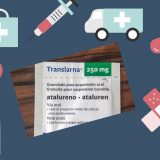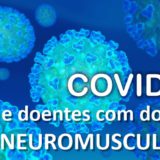Efeitos positivos com o uso de células tronco derivadas de vasos previne a doença cardíaca em camundongos com uma forma grave de doença mas não é eficiente nos camundongos mais velhos
USA – nesta pesquisa foram utilizados dois tipos de camundongos: o mdx com idade mais avançada e o camundongo com a forma mais grave da doença, camundongos sem distrofina e utrofina. Nos animais com a forma mais grave da doença as células tronco conseguiram prevenir as manifestações cardíacas e estimularam a formação de novos vasos e estimularam as células tronco endógenas. Mas nos animais mdx mais envelhecidos não houve resposta ao uso de células tronco. Pelos resultados aprsentados o uso de células tronco deveriam ser o mais precoce possível.
O resumo em inglês pode ser lido abaixo:
(Stem Cells Trans Med, Dec 2012) Injection of Vessel-Derived Stem Cells Prevents Dilated Cardiomyopathy and Promotes Angiogenesis and Endogenous Cardiac Stem Cell Proliferation in mdx/utrn–/– but Not Aged mdx Mouse Models for Duchenne Muscular Dystrophy
Ju Lan Chun, Robert O’Brien, Min Ho Song, Blake F. Wondrasch, and Suzanne E. Berry – USA
Duchenne muscular dystrophy (DMD) is the most common form of muscular dystrophy. DMD patients lack dystrophin protein and develop skeletal muscle pathology and dilated cardiomyopathy (DCM). Approximately 20% succumb to cardiac involvement. We hypothesized that mesoangioblast stem cells (aorta-derived mesoangioblasts [ADMs]) would restore dystrophin and alleviate or prevent DCM in animal models of DMD. ADMs can be induced to express cardiac markers, including Nkx2.5, cardiac tropomyosin, cardiac troponin I, and α-actinin, and adopt cardiomyocyte morphology. Transplantation of ADMs into the heart of mdx/utrn−/− mice prior to development of DCM prevented onset of cardiomyopathy, as measured by echocardiography, and resulted in significantly higher CD31 expression, consistent with new vessel formation. Dystrophin-positive cardiomyocytes and increased proliferation of endogenous Nestin+ cardiac stem cells were detected in ADM-injected heart. Nestin+ striated cells were also detected in four of five mdx/utrn−/− hearts injected with ADMs. In contrast, when ADMs were injected into the heart of aged mdx mice with advanced fibrosis, no functional improvement was detected by echocardiography. Instead, ADMs exacerbated some features of DCM. No dystrophin protein, increase in CD31 expression, or increase in Nestin+ cell proliferation was detected following ADM injection in aged mdx heart. Dystrophin was observed following transplantation of ADMs into the hearts of young mdx mice, however, suggesting that pathology in aged mdx heart may alter the fate of donor stem cells. In summary, ADMs delay or prevent development of DCM in dystrophin-deficient heart, but timing of stem cell transplantation may be critical for achieving benefit with cell therapy in DMD cardiac muscle.



